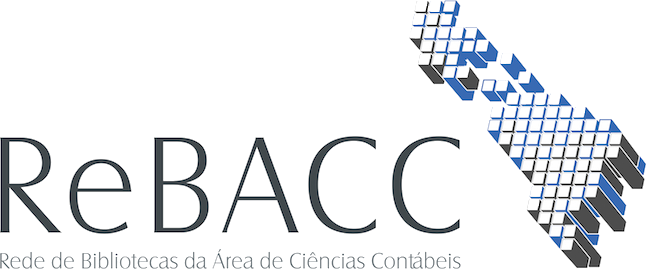Use este identificador para citar ou linkar para este item:
http://rebacc.crcrj.org.br/handle/123456789/3694| Título: | Impacto da introdução de market makers nas negociações das Brazilian Depositary Receipts The impact of the introduction of market makers on the negotiations of the Brazilian depositary receipts |
| Palavras-chave: | Ciência Sociais Aplicadas; Ciências Contábeis, Finanças de Mercado, Mercado Financeiro Market Makers; Liquidez; Teste de Chow; Brazilian Depositary Receipts. Market Makers; Liquidity; Chow’s Test; Brazilian Depositary Receipts. |
| Editora / Evento / Instituição: | Conselho Regional de Contabilidade de Santa Catarina |
| Descrição: | O presente estudo se propõe a analisar o efeito gerado na liquidez das Brazilian Depositary Receipts (BDRs) com a introdução de market makers para esses ativos. A amostra desse estudo foi composta pelas BDRs com pelo menos 200 dias de negociações anteriores e posteriores à contratação dos market makers, chegando-se assim ao número final de 42 BDRs entre os anos de 2010 e 2017. Para os ativos da amostra foram obtidas as séries históricas das proxies de liquidez (bid-ask-spread, número de negócios e volume), posteriormente foi estimado um modelo AR(1) para cada BDR e então empregado o teste de Chow para se verificar a estabilidade dos parâmetros dos modelos. Os resultados encontrados na análise do teste de Chow apontaram que, para um nível de confiança de 99%, 29 BDRs, ou seja, 69% das BDRs estudadas, tiveram mudanças abruptas e estatisticamente significativas no bid-ask-spread, 23 BDRs (55%) apresentaram mudanças significativas no número de negócios e 22 BDRs (52%) apresentaram mudanças significativas no volume. Ao flexibilizar o nível de confiança para 95%, 32 BDRs (76%) apresentaram mudanças no bid-ask-spread, 29 BDRs (69%) apresentaram mudanças no número de negócios e 29 BDRs, ou seja, 69% tiveram mudanças estatisticamente significativas no volume. Esse resultado apresenta, portanto, fortes evidências sobre a influência dos market makers na liquidez de mercado das BDRs, mostrando que a contratação de formadores de mercado pode aumentar a liquidez e contribuir de maneira significativa com as negociações desses papéis. The present study aims to analyze the effect generated in the liquidity of the Brazilian Depositary Receipts (BDRs) with the introduction of market makers for these stocks. The sample of this study was composed by the BDRs with at least 200 days of negotiations before and after the hiring of the market makers, thus reaching the final number of 42 BDRs, between the years of 2010 and 2017. For the stocks of the sample were obtained the historical series of liquidity proxies, bid-ask-spread, number of trades and volume, an AR (1) model was then estimated for each BDR, and then the Chow test was used to test the stability of the model’s parameters. The results found in the Chow test showed that, for a 99% confidence level, 29 BDRs, that is, 69% of the BDRs studied, had abrupt and statistically significant changes in bid-ask-spread, 23 BDRs (55 %) showed significant changes in the number of deals and 22 BDRs (52%) showed significant changes in volume. When the confidence level was relaxed to 95%, 32 BDRs (76%) presented changes in the bid-ask-spread, 29 BDRs (69%) had changes in the number of deals and 29 BDRs, that is, 69% had statistically significant changes in volume. This result presents, therefore, strong evidence on the influence of market makers on the market liquidity of the BDRs, showing that the hiring of market makers can increase liquidity and contribute significantly to the negotiations of these papers. |
| URI: | http://rebacc.crcrj.org.br/handle/123456789/3694 |
| Outros identificadores: | http://revista.crcsc.org.br/index.php/CRCSC/article/view/2804 10.16930/2237-766220192804 |
| Aparece nas coleções: | Revista Catarinense de Contabilidade (CRCSC) |
Arquivos associados a este item:
Não existem arquivos associados a este item.
Os itens no repositório estão protegidos por copyright, com todos os direitos reservados, salvo quando é indicado o contrário.

